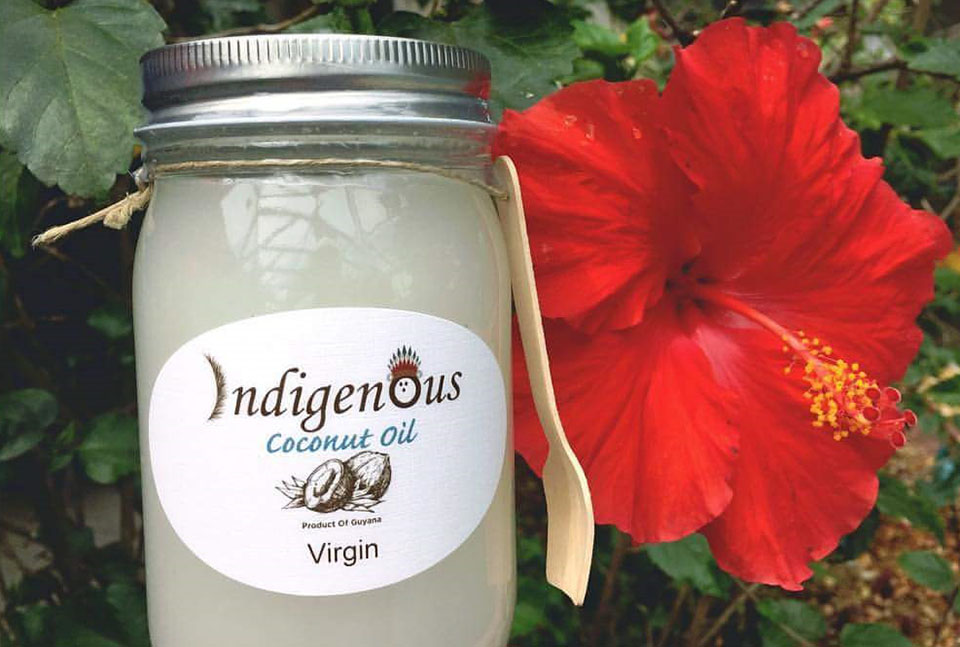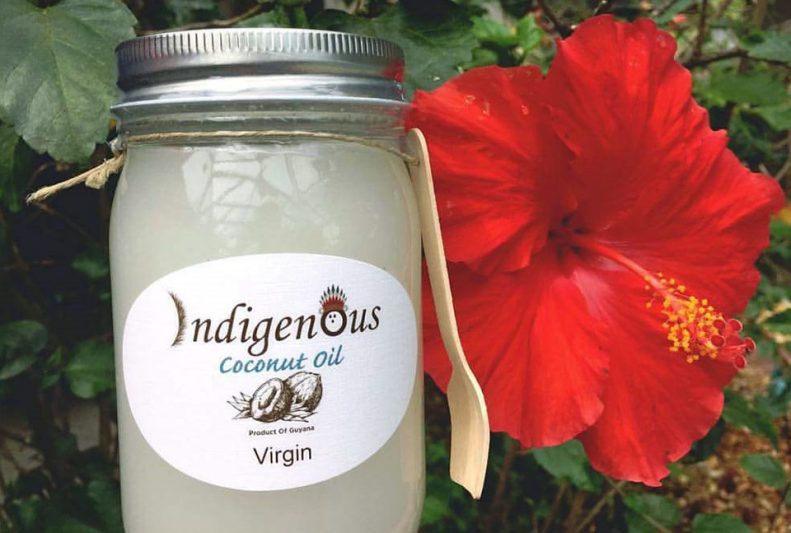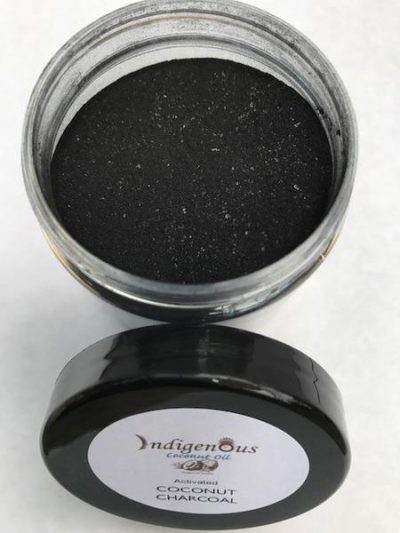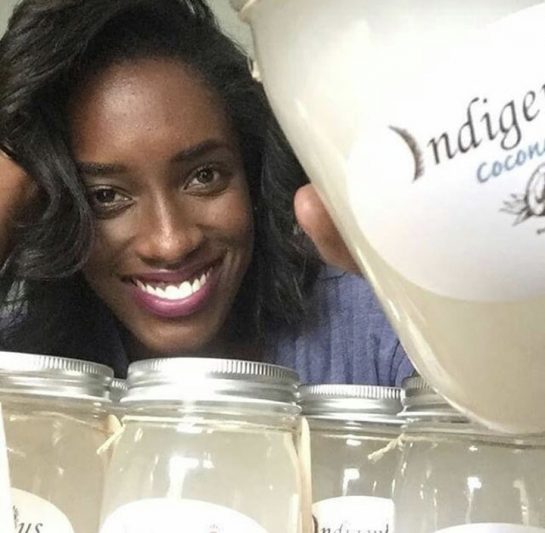The coconut, with its many byproducts, has long been a staple in Guyanese homes, and with attention being geared toward developing more value-added products locally, one overseas-based Guyanese, under the Indigenous Coconut Oil brand, has ventured into another realm of coconut goodness—activated coconut charcoal.
Founder of Indigenous Coconut Oil, Danielle Hodge, explained that the charcoal product, made from coconut husk, traps toxins and chemicals. “It’s like a strong, holistic, health magnet and works to cleanse…,” she related.
Hodge took the leap to develop coconut charcoal after the overwhelming response to her Indigenous Coconut Oil. The product has garnered the attention and praise of coconut oil lovers locally, who have been more than happy to share their reviews on Facebook and Instagram.
Alluding to Guyana’s history of using herbal treatments, she described the many uses of coconut charcoal, including for oral hygiene purposes and facial masks.
“To all my young people, ask your parents. They may tell you they used to cut some black sage, make it into a brush, dip it in coconut charcoal and brush their teeth. When it’s used for your teeth it helps lift stains, toxins and assists with oral hygiene. There are so many uses including using it to make soap, and using some other natural products to make a facial mask. Making a facial mask recipe binds toxins and dirt that contribute to acne,” Hodge related.
“What triggered me the most to introduce coconut charcoal as my second product is seeing the tremendous waste of coconut shells in Guyana. In Pomeroon, the shells get caught in boat motors and pollute the river. I automatically thought ‘Why throw away profitable raw material that can be reused and not pollute the water ways?’”
Hodge, 32, who most recently travelled to Guyana to participate in the Ministry of Foreign Affairs’ and the International Organisation for Migration’s diaspora conference in May, had launched the Indigenous Coconut Oil brand in October 2016. The diaspora engagement was intended to inspire overseas-based Guyanese to return to Guyana to invest.
In an interview with this newspaper, the marketer related that she was inspired to pursue that path after travelling back home for the Coconut Festival held last year.
What she has most been driven by, she related, is the desire to empower local indigenous communities, and local women entrepreneurs.
“Not only is the coconut industry on the rise, but young entrepreneurs such as myself see opportunity and want to see progression in areas where it’s needed. Grassroots, partnerships and social media play a big role in creating opportunity. I have young female cousins who struggle to find a job in Guyana and I have witnessed women with full potential who want to get over the obstacle of fear and step out into the world of business,” the Florida resident shared.
The coconut oil is made by a group of women in the Pomeroon, and packaged both locally and abroad. Addressing any concerns that support of the business would mean loss of revenue from the country, Hodge responded:
“As I market my product in the states and educate people on where my products come from, they get excited, love the product and want more. I would hope those people see my brand as not taking away revenue, but bringing in more revenue. Local communities will benefit because as the products get popular, so does my supplier and the workload. Guess what that does? Creates jobs and empower the women who I purchase from,” she stated. She related that on her next visit to Guyana she would like to visit more schools and communities, to explore developing more partnerships under her brand.
Indigenous Coconut Oil stands out from its competitors because of its unique packaging—the coconut oil is held in a mason jar, equipped with a modest wooden spoon for scooping and mixing.
“I remembered that while starting Indigenous Coconut Oil, I wanted my jar to catch your attention without even trying,” Hodge stated. “I like that the packaging sells itself but I really do hope that people catch on to my story behind the brand also.”
Stating that it is difficult to find packaging in Guyana, she noted that it is quite expensive to ship jars from Florida, and expressed the hope that soon more biodegradable and eco-friendly packaging will be available locally.
Asked what inspired her to become involved in the sector, Hodge said that coconut oil has been of use in her family for many years.
“What inspired me to pick coconut oil was that I saw a market for a product that has been used in my family for so many years. Honestly, God picked it for me, because with my extensive marketing background it could have easily been anything else. There’s just something about the awesomeness of coconut oil and its many uses that made it an easy choice,” she said, adding that with encouragement from family and friends and under mentorship from Johan David at the Guyana Marketing Corporation, she was inspired to stay the course.
While she said that she has no plans to release other products at the moment, she did express the intention to add to the brand down the road. For Hodge, the path paved for the coconut industry is a clear one.
“The Philippines and other countries have held the crown for some time, but Guyana is there. Coconut oil is an easy product to believe in and has lots of proof that it works wonders. The coconut path from Guyana seems pretty clear if you ask me.”
Indigenous Coconut Oil is available for purchase at the Guyana Marketing Corporation on Robb Street and Eco for Life on Brickdam. However, coconut charcoal is not yet available locally.
For United States residents, the products can be ordered through the website, www.IndigenousCoconutOil.com or bought at the Veranda Park Farmer’s Market in Orlando, Florida.








